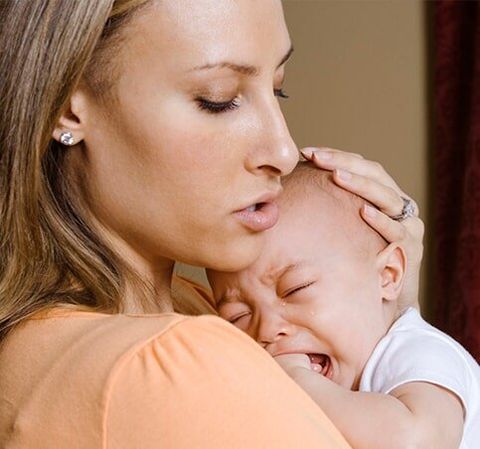Common Health Concerns in Oxford, PA
Croup:
infection of the windpipe that is typically caused by a virus.
Signs/Symptoms
- High pitched coarse sound when breathing in
- Barking cough
- The hollow in the child's neck may "pull in"
- Fever usually absent or low grade
Treatment
- Stay calm
- Open freezer door and allow child to breathe the air from the freezer
- Use a vaporizer in the child's room
Call the Doctor
- If breathing not improved after 5 – 10 minutes
- If breathing becomes harder
- If child begins drooling or has trouble swallowing
REMEMBER TO KEEP CALM
- If parents remain calm, it is easier to ease the child's mind to keep them calm.
Colic
This includes abdominal cramping that makes the infant stiffen, "draw up" their legs, and cry.
Signs/Symptoms
- Although symptoms last throughout the day, they can get worse as the end of the day approaches.
- Colic typically will go away at 3 months of age as the infant's digestive system further develops.
- Colic usually begins between 1 – 3 weeks of age. Most babies do not suffer from Colic.
- Breastfeeding reduces risk of Colic.
Treatment
- Gentle rocking/swinging will sometimes help.
- If physician recommends, a change in formula can help.
- There are medications that can help.
- Applying heat can help, but never use a heating pad.
Vomiting & Diarrhea
Treatment
- Take the child off of dairy, fruits, and solid foods.
- Offer small amounts of liquids that are easily absorbed (Pedialyte, Gatorade, Coke, Sprite, etc.). Use clear liquids for 24 hours.
- For Infants: give formula at half strength after 24 hours of clear liquids.
- Children over 1 year: on 2nd day, give jello, broth, toast, crackers. Continue clear liquids until bowel movements are normal.
- If after 24 hours on half strength formula bowel movements are back to normal, proceed to regular diet.

When to Call the Doctor
- When the above mentioned measures have not worked.
- When there is blood in bowel movements.
- Persistant fever of 101 degrees or greater.
- Decreased urine output/decreased number of wet diapers.
- Vomiting, abdominal cramping for more than 12 - 24 hours.

What to do when a Baby Cries?
Why Babies Cry:
- Adjusting to new environment
- Lonesome
- Sick
- Too hot or too cold
- Hungry
- Diapers need changing
- Has gas/need to be burped
- Bored
- Wants to suck
- Teething
- Some babies just cry
Don't:
- Take it personally.
- Let the baby "cry it out" alone (can make him/her more insecure)
What you can do:
- Nurse/feed the baby
- Hold the baby
- RELAX, the baby can sense your frustration
- Let someone else hold the baby while you take a break
- Rock the baby or try placing the baby in a baby swing
- Soothing music
- STAY CALM
- Re-position the baby
- Pat gently

*Persistant crying could signify a problem. Call the baby's doctor, especially if you suspect your baby may be sick.
Colds
Yes, even babies can catch colds. These colds are rarely severe, usually lasting 5-10 days.
Nasal congestion, if severe, may interfere with feedings. Small babies ahve difficulty with a cold because they are "nose breathers", not effectively breathing through their mouths.
Low grade fevers can be expected: however, if your child has a temperature of 100.5 degrees and becomes irritable, call the doctor.
Nasal congestion, if severe, may interfere with feedings. Small babies ahve difficulty with a cold because they are "nose breathers", not effectively breathing through their mouths.
Low grade fevers can be expected: however, if your child has a temperature of 100.5 degrees and becomes irritable, call the doctor.
Infants less than 3 months:
- Humidifier/vaporizer cool mist type is preferred.
- Raise the head of the child's bed so that the head is elevated.
- Use salt water nose drops to cleanse the mucous from the child's nose - gently suction with a soft rubber bulb. ( Salt water nose drops - mix 1/2 teaspoon salt with 8 oz. lukewarm water. Put 4 - 5 drops into each nostril, wait 1 - 2 minutes, then gently suction the nose with a bulb syringe.) Use as often as needed to relieve congestion.
- Do not give medication unless approved by the doctor.
Infants older than 3 months:
- All of the above is needed.
- A mild decongestant might be needed; please call the doctor.
- Post nasal drip usually leads to coughing, so cough medicines or expectorants are rarely needed.
- Colds that "never clear up" may represent other illnesses; therefore, call the doctor.








